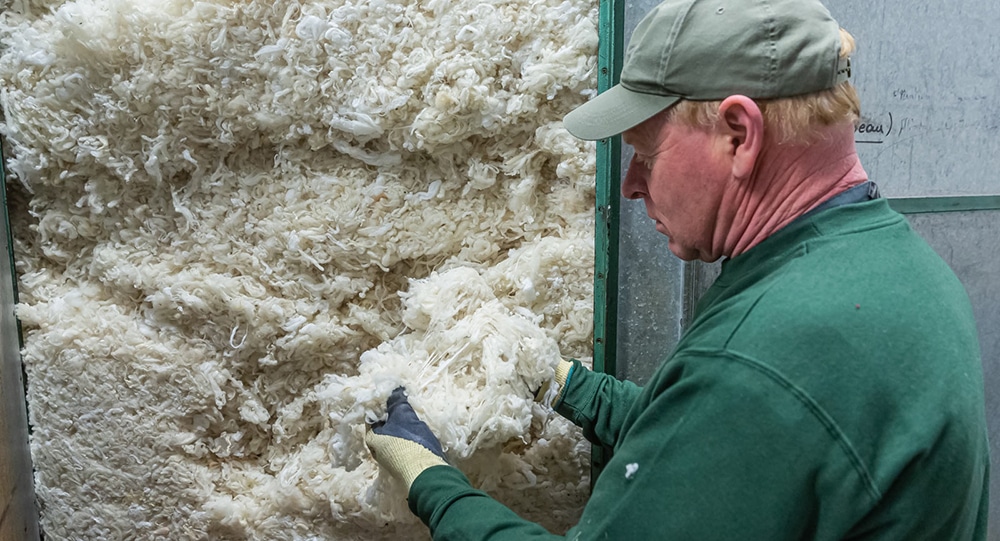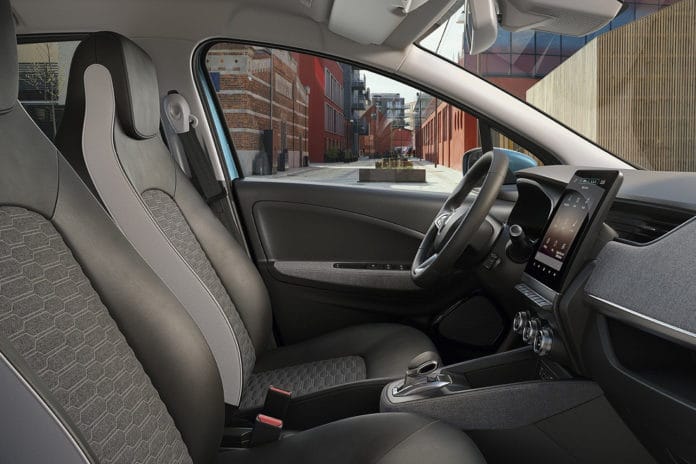As part of the “Àfiler” project, launched in 2015, the New Renault Zoé is now dressed up with a patented textile made exclusively from recycled materials and made in France in a short loop. This innovation would reduce the associated CO2 emissions by more than 60%, compared to the process used for the fabric of the previous Zoe.
The project was launched in collaboration with Filatures du Parc, a spinning mill in the Tarn region of France, and Adient Fabrics, an automotive seat supplier in Ariège, France.
A unique, patented textile product is made from safety belts, textile scrap from the automotive industry. The Filatures du Parc, located in Brassac in the Tarn, is responsible for the cutting and grinding of these materials. The resulting fibers are then mixed with polyester fibers from the recycling of plastic bottles (PET) to ensure good cohesion.

They then undergo a series of carding operations. This traditional technique is based on a drum system filled with very fine steel tips rotating at high speed to extract, split, stretch, parallelize and twist the fibers to obtain the yarn, all without chemical and thermal transformation.
Finally, a weaver and supplier of 1 in 3 automotive seats in the world, Adient Fabrics, receive this 100% recycled carded yarn for weaving. The fabric is then used by Renault for the manufacture of seat covers, dashboard coverings, gear lever brackets, and door fittings, a total area of 8 m². The fabric, according to the company, meets the high requirements of “comfort, cleaning, UV resistance, and durability.”
“This approach contributes to the Group’s commitment to reduce the environmental impacts of each vehicle throughout its life cycle and to reduce its global carbon footprint by -25% in 2022 compared to 2010,” said Jean-Philippe Hermine, Director of Environmental Strategy & Planning for Groupe Renault.
The new Renault Zoé also incorporates 17.5kg of recycled plastic, part of which is used for the first time in Renault’s range invisible parts in the passenger compartment, such as low polypropylene interior cabinetry.
